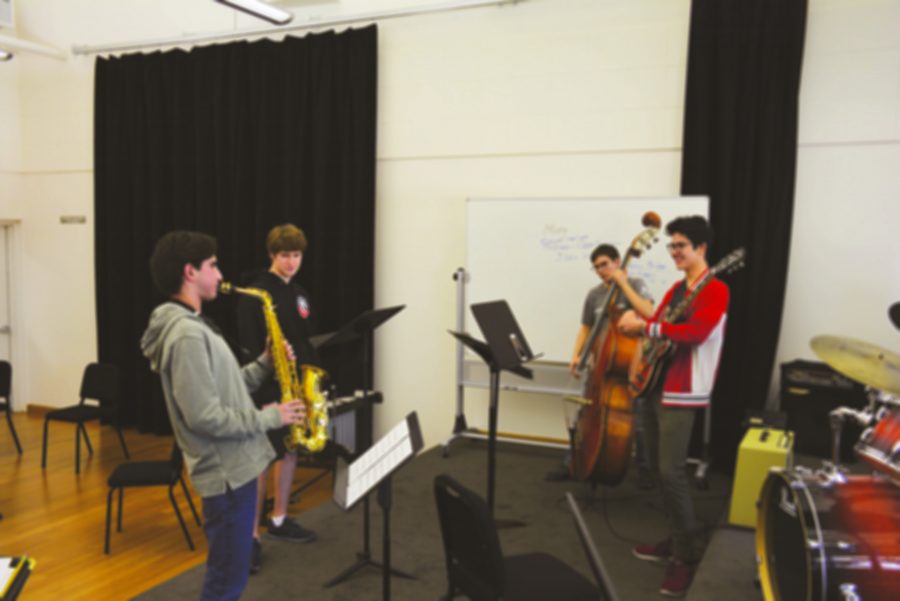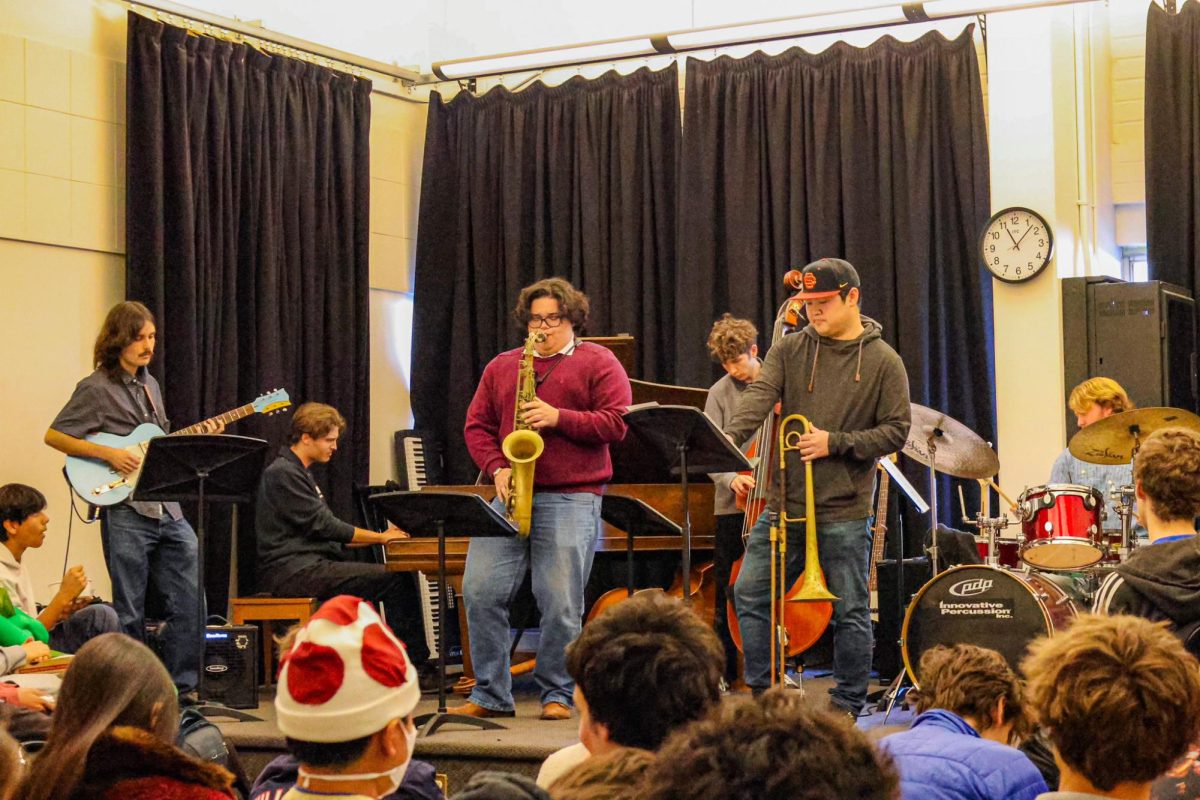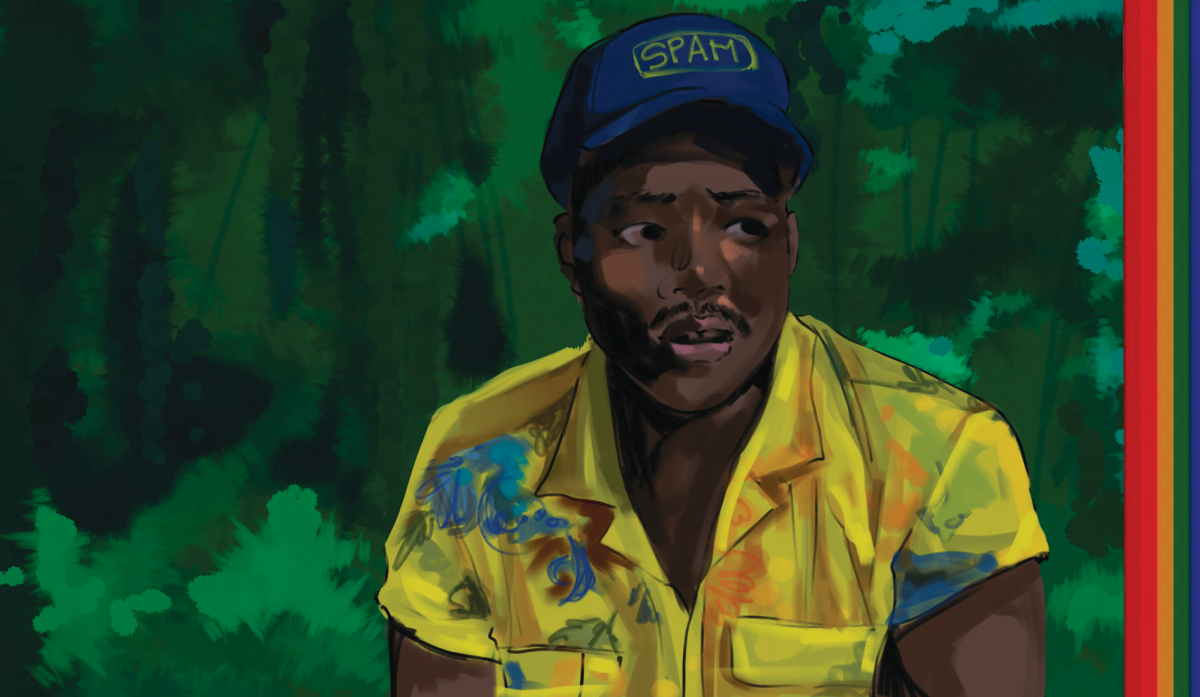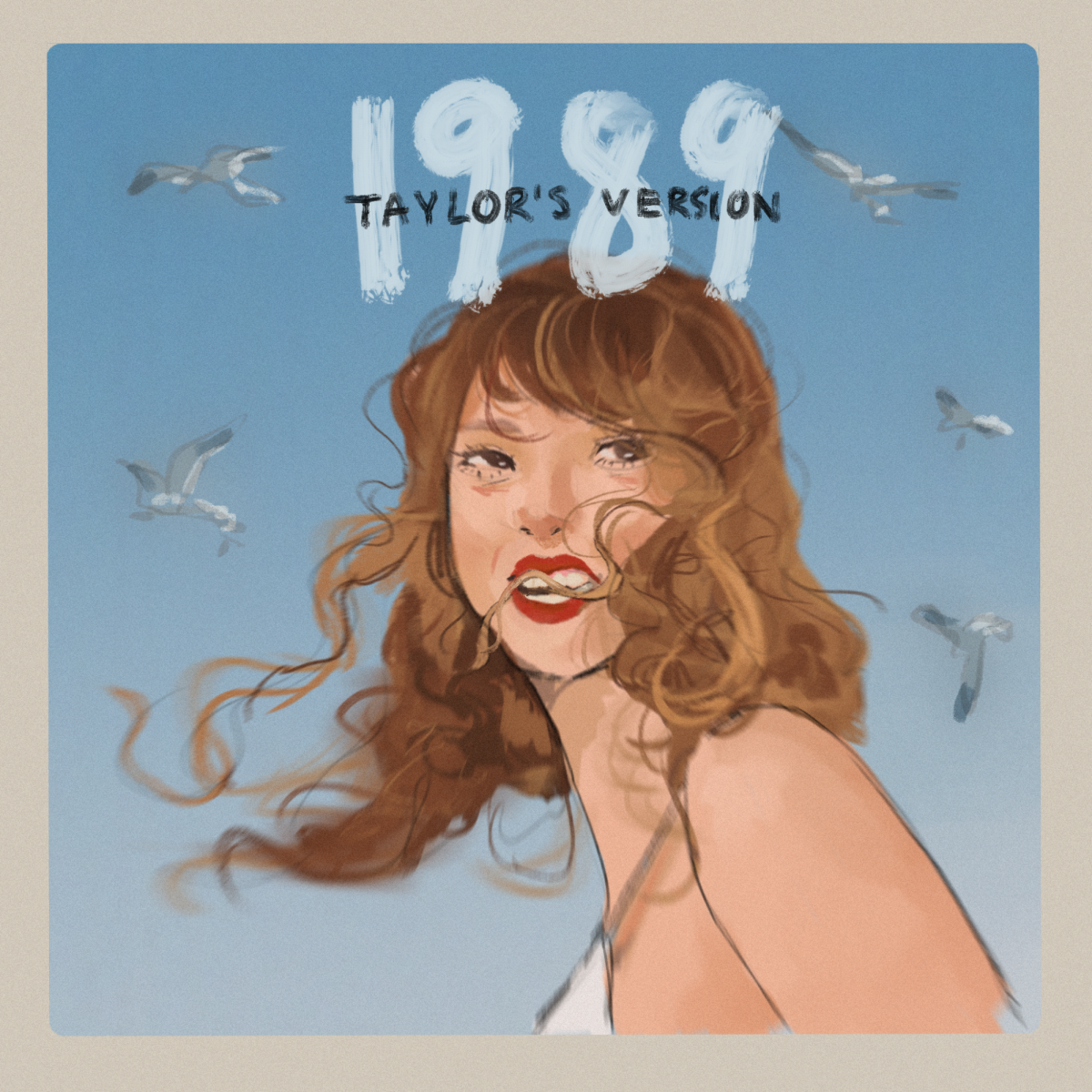Sitting at her desk, violinist Clara Ross ’19 read over her schedule for her next school year, realizing that she had to make an important decision that could define her Harvard-Westlake career: choosing between orchestra and debate. An eighth grader at the time, Ross sat in frustration as she weighed her two options. Ultimately, she decided she had to follow her true passion: music.
“In the end, at the bottom of my heart, I know that it was the right choice because it shaped my identity, as a violinist, that I still hold until this day,” Ross said. “This school has a very strong music program, especially in comparison to most schools. In particular, we have a very strong chamber music program at the Upper School, which really helped me explore different mediums of music and connect with people.”
Bass player Calvin Kaleel ’17 also voiced positive opinions on the impact the school’s music program has had on his life.
“[The music] just enriches your life,” Kaleel said. “I am always humming a tune that I am playing in Jazz Band or Symphony, and it makes me really happy. I get to work with a lot of great, creative people, and I think everyone should have music in their lives. It is a great unifier and I just love it.”
In the first few months of the school year, the upper school instrumental music program focused on starting off strong with each ensemble’s performance.
Four jazz combos, made up of students from Jazz Band and Studio Jazz, performed in the Catalina Jazz Club on Oct. 22. Their repertoire included “Monday Night October,” an original composition by Charlie Kogen ’19, “Conception” by Miles Davis and “Passion Dance” by McCoy Tyner.
In preparation for the performance, the combos practiced together almost every day for nearly two months.
“[It is] a team effort to sound like we have been playing together for years, although we have only been playing together for a couple of months,” instrumentalist Otis Gordon ’20 said. “It is a really fun process, and although it could be stressful at times, when playing on stage it all comes together and it really feels like something we all accomplished together.
The performance demonstrated to members what they could accomplish as a group and sparked excitement for future performances in the year.
“The Catalina performance was definitely interesting because it was the first concert we ever played together as a group,” Gordon said. “But it came together nicely and all the groups playing all sounded clean. I can’t wait to see how we progress throughout each concert.”
Musicians in Symphony and Camarata Strings will perform at the Upper School Fall Instrumental Music Concert on Nov. 17.
In the absence of upper school Symphony director Mark Hilt, players in both ensembles have been rehearsing under the direction of substitute orchestra teacher Daniel Faltus, who has worked part time for the school since 2013 as a pianist, musical director for the fall musicals and substitute teacher in the performing arts department.
“I am delighted to be involved and I look forward to the evening,” Faltus said. “A concert of this kind takes a great deal of work and preparation and it’s always very exciting when the actual performance day comes.”
The concert will feature music played by each ensemble and combined pieces. Camarata Strings will perform “Minuet” by Joseph Haydn, “Royal Minuet” by Georg Philipp Telemann and “Brandenburg Concerto” by Johann Sebastian Bach. Symphony will perform “Symphony in C” by Georges Bizet and “Doctor Gradus Ad Parnassum” by Claude Debussy.
Camarata Strings and Symphony will collaborate and play “Serenade for Strings” by Dag Wiren. Hilt, who according to Faltus has a wonderfully rich knowledge of orchestral repertoire, selected the music for the concert.
To prepare for the concert, the orchestras will practice in after school rehearsals as well as their regular classes. Class rehearsals are split between full ensemble run-throughs and sectionals, where only a specific section of the orchestra practices.
“We rehearse the pieces as needed and I take suggestions from the players as to what needs the most work as we approach the performance,” Faltus said. “The closer we get to the concert, the more we play through the pieces without stopping.”
Faltus also stressed the importance of students’ preparation at home.
“Each group makes progress toward the final goal, but it’s also up to the individual musicians to practice on their own,” Faltus explained.
Faltus said he hopes his students will take away something new as individual musicians. He said he wants the music in the concert to not only touch the audience members watching the show, but also the performers playing on stage.
“[I hope] they come away having improved as individual players and orchestral members,” Faltus said. “And of course that they have experienced the unparalleled joy of music.”



































